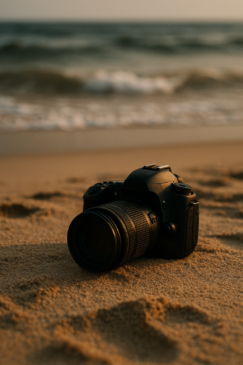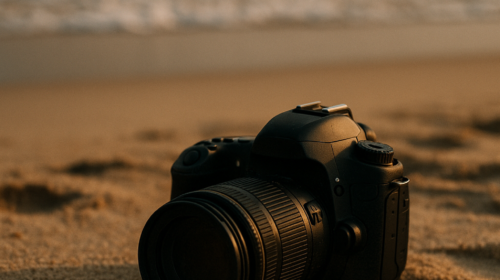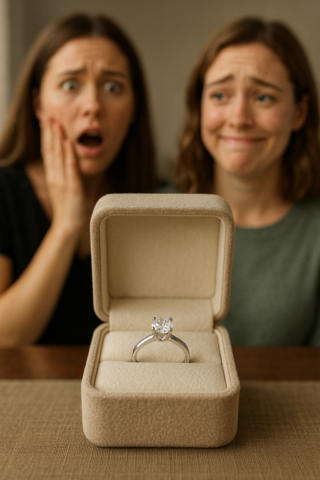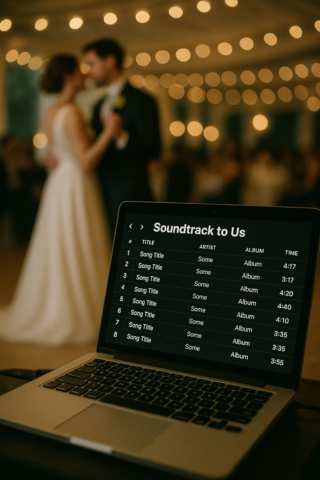Photography has always been more than a hobby for me—it’s how I see and hold onto the world. My DSLR camera wasn’t cheap, but every dollar I spent on it felt like an investment in moments, memories, and self-expression. Over the years, it had come with me on adventures: foggy mornings on city streets, laughter at family gatherings, even my first paid gig capturing a friend’s wedding. That camera wasn’t just equipment. It was a companion, a creative partner, and a piece of my story.
The Ask
So when my sister, Laura, asked if she could borrow it for a weekend trip with her friends, I hesitated. She’s never been reckless, but she’s not a photographer—she doesn’t know the rituals I have around my gear or the care I take with every lens and strap. Still, I love her, and I wanted to believe she’d understand. I agreed, but I made one request: “Please, Laura, keep it in the padded case whenever you’re not using it. That’s the only rule.”
She promised. I handed it over, tucked safely in its case, and told myself not to worry.
The Call
Sunday evening, my phone buzzed with a text from Laura:
“Hey… can you call me?”
My heart dropped. The ellipses, the nervous tone—it was never good news. I called her, and before I could say hello, she blurted out, “I’m so, so sorry. I lost your camera.”
Silence stretched between us.
“What do you mean, lost it?” I finally managed.
Her voice trembled. “We were at the beach. I put it down for a second, just while we were setting up the picnic. When I went back, it was gone. I think someone took it.”

The Gut Punch
My mind reeled. It wasn’t just the price—though replacing that setup would cost well over a thousand dollars. It was the photos from our last family reunion, the lens I’d saved months to buy, the custom strap a friend had made for me when I landed my first paid shoot. It was the fact that this camera fit my hands perfectly. Every scratch and button press was familiar.
My voice was tight. “I asked you to keep it in the case when you weren’t shooting.”
“I know,” she whispered, on the verge of tears. “I thought it’d be fine just for a minute. I feel horrible.”
Her Attempt to Fix It
Laura didn’t hesitate—she immediately offered to replace it. “I’ll buy you a new one,” she promised, “I swear.” And she did. A few weeks later, a brand new camera arrived at my door, the same model, even with a new lens.
But as grateful as I was for her gesture, the new camera felt foreign. Stiff. It clicked differently in my hands, the way a new pair of shoes pinches before it’s broken in. All the memories, the stories, the proof of how far I’d come as a photographer—gone in a moment of forgetfulness.
The Conversation
I sat down with Laura not long after. I told her, “It’s not just a gadget. It was personal. I trusted you with something that means a lot to me, and now it’s gone.” She looked devastated, tears in her eyes. “I know, and I’m so sorry. I thought I was being careful.”
I believed her. I knew she hadn’t meant to be careless. But being sorry didn’t change the reality—I’d lost something irreplaceable.
Moving Forward
With time, I forgave Laura. I took the new camera out, learned its quirks, and started to build new memories. But something had changed. I realized I couldn’t bear to risk this kind of loss again—not out of anger, but self-preservation. From that point on, I set a new boundary: I wouldn’t lend out my most valuable or sentimental belongings, even to family.
It wasn’t about holding a grudge or not trusting those I loved. It was about protecting myself from the unique pain that comes when something irreplaceable is lost.
Why It Hurt
When you lend something deeply personal, you’re trusting someone with more than an object—you’re trusting them with a piece of your history, your passion, your story. When that’s lost, no amount of money or replacement can bring it back. The loss is about more than value; it’s about connection.
Lessons Learned
Boundaries are healthy, especially around what’s personal. If something is too important to lose, it’s okay to say no, even to family. Love doesn’t mean risking heartbreak for the sake of convenience or goodwill.
Final Thought:
Replacing an object doesn’t replace its history. Some things carry a weight that can’t be measured in dollars—and once they’re gone, they’re gone. Protect what matters to you, and remember: it’s okay to set boundaries, even with the people you love most.



